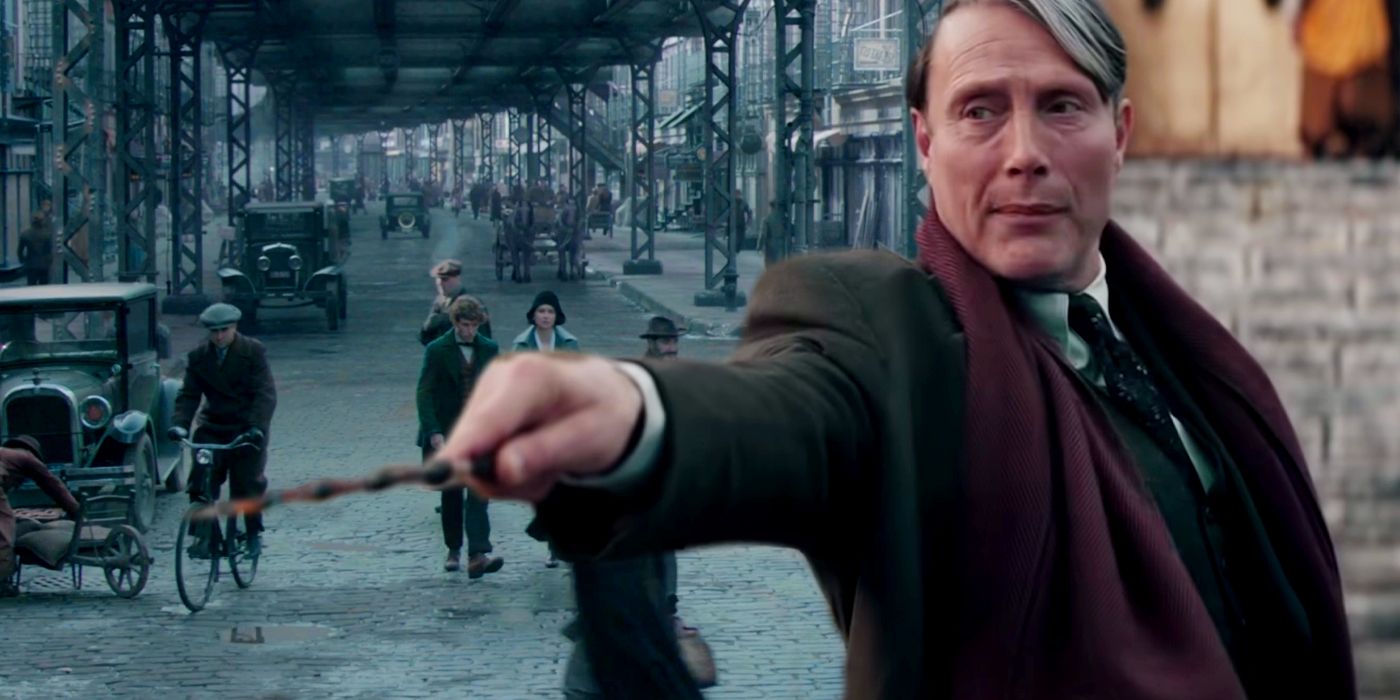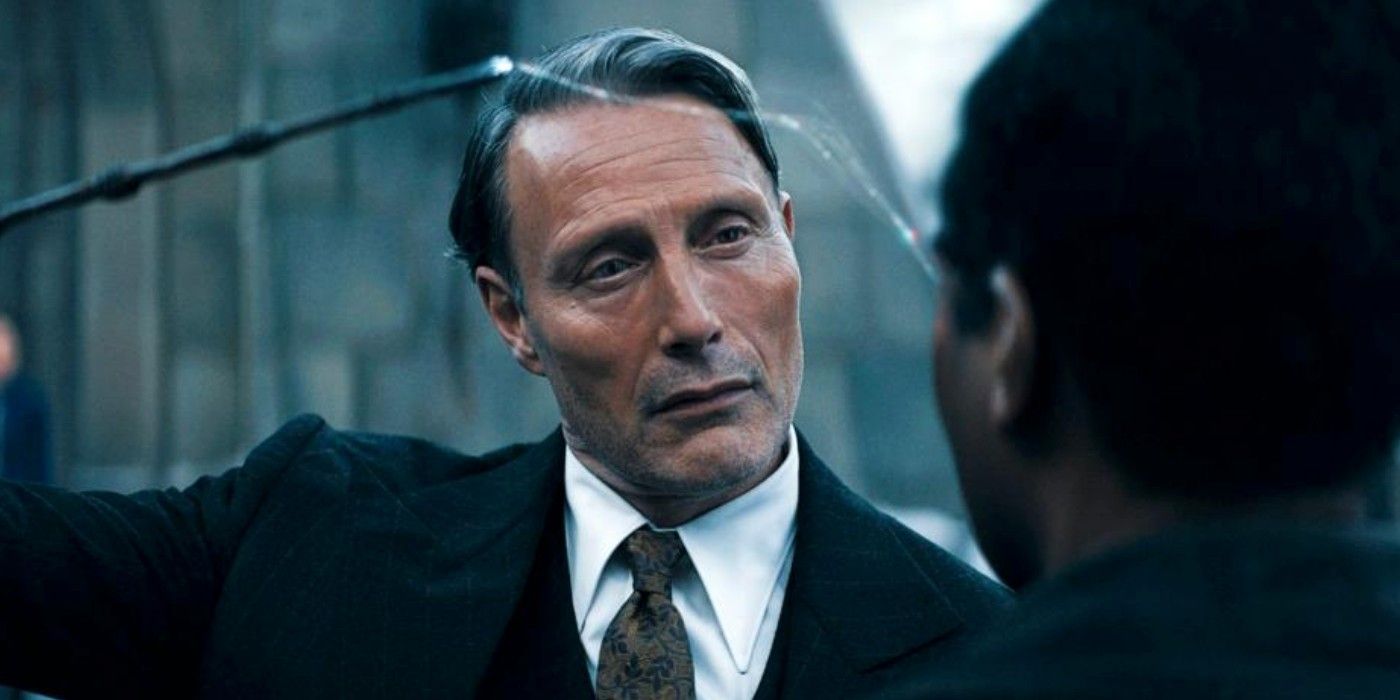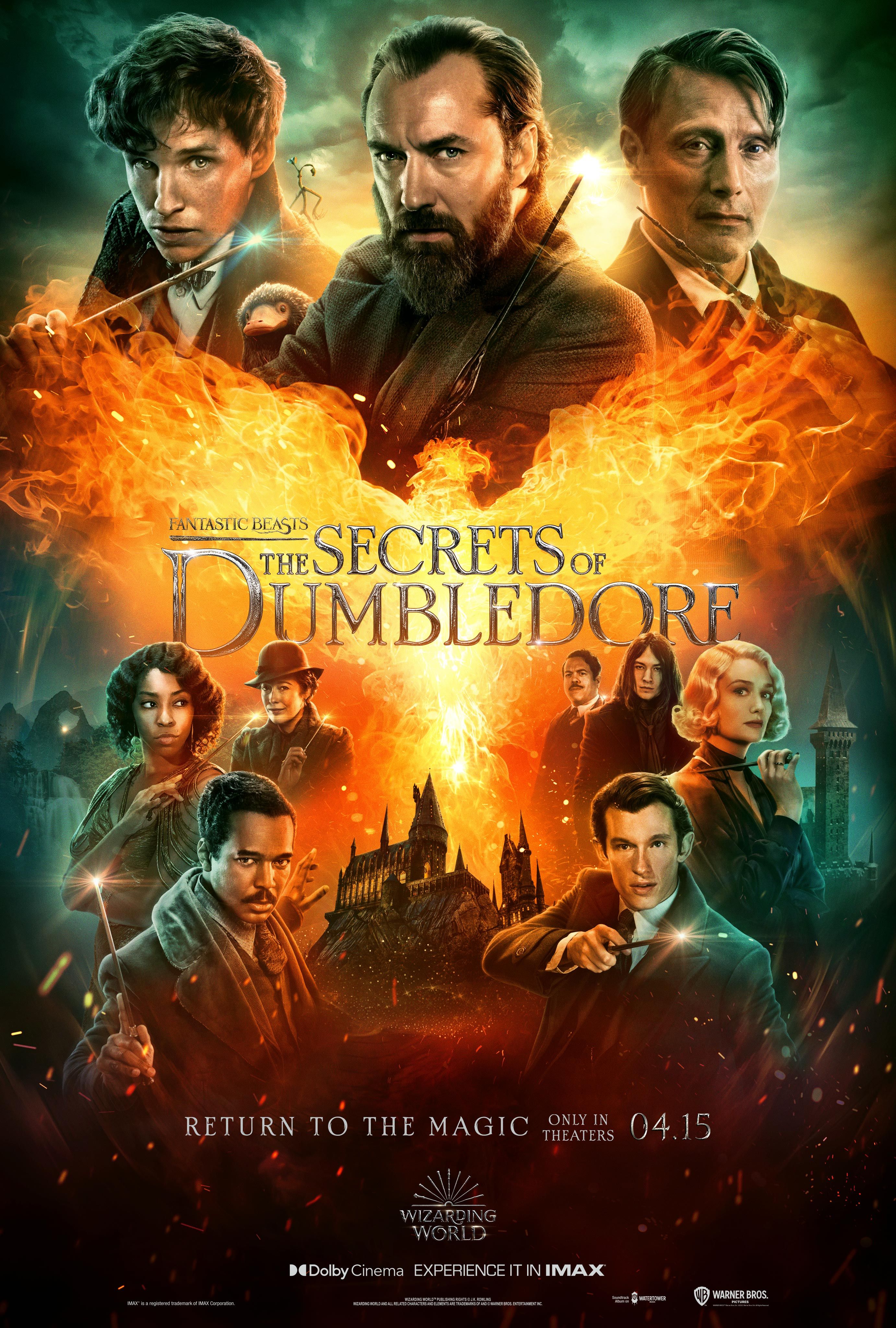Gellert Grindelwald's (Mads Mikkelsen) reign of terror in the Fantastic Beasts saga ends in 1945, just like World War II, and this is not a coincidence. Fantastic Beasts: The Secrets of Dumbledore will focus on Albus Dumbledore (Jude Law) as he rallies up a team in his war against the increasingly menacing Grindelwald. Fans have known for a while that the five-movie series is building up to the legendary duel between Grindelwald and Dumbledore in 1945, where the dark wizard is defeated and imprisoned until his death at the hands of Voldemort (Ralph Fiennes) in 1998. J.K. Rowling confirmed that Grindelwald's war and World War II fed off each other throughout their duration.
Grindelwald was a natural-born Seer and he once had a vision where he saw himself rise to dominance over the wizarding world. When he found out about the fabled Deathly Hallows, he became obsessed with obtaining them and becoming the Master of Death. His search for the Hollows eventually led him to Godric's Hollow, where he met Dumbledore and formed a very close relationship with him (resulting in the blood pact that prevented the two from fighting directly in Fantastic Beasts 1 and 2). Dumbledore distanced himself from Grindelwald when he realized his agenda was much darker than he'd promised. But by the late 1930s, Grindelwald's lust for power and hatred for the Muggles had risen beyond control, starting a full-blown war in the wizarding world. It was also in 1939 that a tyrannic leader started a race war with a manipulative discourse that had a lot of people fooled.
Interviewed in 2005 about Grindelwald and World War II, J.K. Rowling said (via Accio Quote): "It amuses me to make allusions to things that were happening in the Muggle world, so my feeling would be that while there’s a global Muggle war going on, there’s also a global wizarding war going on." Fantastic Beasts 3 is building towards a huge wizarding war that reminds viewers (almost a bit too much) of World War II, both ravaging the world because of one man's psychotic vision and lust for power. Rowling confirmed that the two wars feed off each other - this can be interpreted as a direct process (as Grindelwald causes chaos and destruction throughout Europe) or as an indirect one (where the fear and panic caused by the war spread from one world to another, especially since Grindelwald is targetting Muggles). And as one world finds peace in 1945, so does the other.
Grindelwald's power of persuasion (or talent for manipulation) was already well-known among wizards in the 1930s. After stealing the Elder Wand from wandmaker Mykew Gregorovitch in 1926, Grindelwald committed mass murder across Europe. With the wizarding authorities on his tail, Grindelwald started gathering followers, in case he got captured. Perhaps even better than Voldemort, Grindelwald uses his sharp tongue as a means to a horrifying end, convincing wizards that his reign of terror is for "the greater good," in order to free wizards from having to live in the shadows (this is the very idea that convinced Dumbledore to join his battle in the late 1890s). Once again, this is something that fed off or into World War II, where Adolf Hitler quoted notions such as honor and loyalty, nation and fatherland, in order to manipulate his followers and shift the attention away from the atrocities he committed.
The wizarding and Muggle worlds have always been intertwined, influencing each other throughout history. It thus makes sense that as the fear and chaos are halted along with Grindelwald's demise in 1945, the good side gathers the strength to win in the Muggle world, too (and vice versa). However, the Muggle-wizarding world parallels in the Fantastic Beasts/Harry Potter universe should not undermine the actual struggle and tragedy of World War II (explaining the events as a result of Grindelwald's war). Grindelwald's reign of terror happening alongside World War II only goes to show how quickly dread can spread, but also how there's always hope for a positive outcome.



